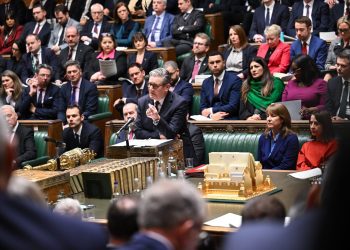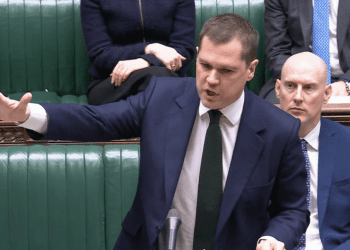Next month’s UK-EU summit will be the most consequential since Britain withdrew from the European Union. For the first time since the 2016 referendum, we are negotiating with our closest neighbours on specific ways to enhance rather than diminish this most important relationship. With all that has happened this year, it is right that defence cooperation has taken priority. Reports suggest that a defence deal is all but complete with side orders of energy cooperation, food standards and a youth mobility scheme in the pipeline as well. However, if the prime minister learns from the mistakes of the last government, we can be hopeful for so much more.
When David Davis sat across the table from his opposite number for the opening of the Brexit talks, only one side brought any documents. While it was only one photo, it spoke volumes about the Tory government’s approach and attitude to negotiations compared to the EU. While they struggled to agree on what type of Brexit they wanted, Brussels was prepared and in the face of British uncertainty set the terms of the negotiations. The talks were conducted to the EU’s schedule, with their priorities addressed first.
The geopolitical upheaval we have experienced over the last three years and particularly in the last three months might tempt some to believe the EU will be a softer touch this time around. Yes the situation is different and the mood music has improved, but we should not be naive. Starmer’s relationship reset is still a negotiation and if we want a better result he must play the UK’s hand a good deal better than Theresa May or Boris Johnson. Unlike his predecessors, he has an ace in the hole this time around.
Britain remains one of NATO’s foremost military powers in Europe, with the highest defence spending among European allies and critical assets like a nuclear deterrent and advanced arms manufacturing. Unlike 2017, this is now a key consideration for Brussels. For a continent in a hurry to rearm, Britain is an obvious asset. In the face of both Russian aggression and US isolationism, greater cooperation between Europe and the UK must happen and will understandably be the focus of any joint declaration from the EU-UK summit. But it must be the first step in delivering what Britain really needs from the relationship reset — the removal of technical barriers to trade. Politically, this is what the government needs as well.
This government will be judged on economic growth, and the benefits of this growth being felt by ordinary people who have seen prices go up while wages stagnate. This is already a tall order with the UK’s productivity woes and limited fiscal headroom but add to that Donald Trump’s trade war, which the IMF has flagged as a drag on global growth. In this context, deeper alignment with the EU on goods and services could deliver the certainty businesses crave and the economic boost the UK urgently needs, all while reducing costs for consumers.
Research by Frontier Economics, commissioned by Best for Britain, shows that closer regulatory alignment could deliver up to 1.5% GDP growth, with the biggest gains in the Midlands and the North. Meanwhile, the EU could soften the blow of US tariffs by boosting trade with a UK more closely integrated into its regulatory framework.
Recent reports suggest that at least for now, the focus is on a sanitary and phytosanitary (SPS) agreement, including some regulatory alignment. While helpful for the agrifood sector, it will only have a marginal impact on growth. Removing technical barriers to trade for entire supply chains across multiple industries is what’s needed to meaningfully shift the economic dial. Britain needs more than an SPS agreement and voters agree.
Polling shows that Brits expect trade to be the top priority for this government at next month’s summit ahead of cross channel migration or defence, and contrary to received wisdom, they are relaxed if improving trade with our largest market means following some of their rules. On a list of their overall priorities, keeping the door to a US trade deal comes second from the bottom in a list of twenty and twice as many say the government is not going far enough in deepening ties with the EU compared to those who say their current approach is correct.
For the UK and EU, helping goods cross borders can drive the economic growth that can help us meet the huge external threats we face together. It is in both the UK and EU interests to ensure that agreements next month on defence, youth mobility and carbon tax harmonisation are only the first step. If Starmer wants to deliver on his promise of national renewal, he must avoid short-term wins and focus on the prize that really matters: growth through a common sense deal on trade.
Politics.co.uk is the UK’s leading digital-only political website. Subscribe to our daily newsletter for all the latest news and analysis.
The post The UK-EU summit is an opportunity to put a common sense trade deal on the agenda appeared first on Politics.co.uk.

































